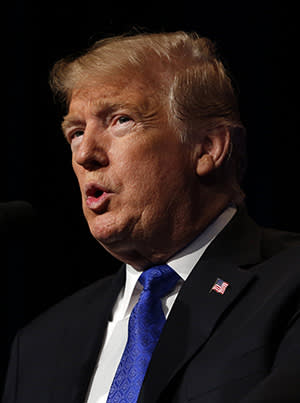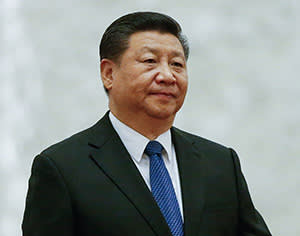- 우림단상
- 19-02-02 12:28
- 11,454
[주요 외국 언론의 칼럼] China and US prioritise optics over trade substance
본문
https://www.ft.com/content/dd01f23c-ffc1-11e8-b03f-bc62050f3c4e
January 22, 2019
Special Report The World - World Economic Forum in Davos
China and US prioritise optics over trade substance
At the start of 2018, after the first full year of the Donald Trump presidency, it was still just about possible to believe the US leader’s belligerence on trade policy was just for show. Frothing rhetoric had resulted in several investigations launched and a lot of threat about direct action but nothing concrete.
Twelve months later, the idea that Mr Trump’s protectionism was purely rhetorical has been disproved comprehensively. Tariffs on steel and aluminium have been applied to trading partners around the world, ostensibly on national security grounds but including traditional foreign policy allies as well as foes. Canada and Mexico were forced into a renegotiation of the North American Free Trade Agreement (Nafta), which became the US-Mexico-Canada Agreement (USMCA) — a clumsier arrangement, both in name and substance.
 Trump: boasts of dealmaking ability ©AFP Threats of car tariffs against the EU forced Brussels reluctantly to the negotiating table. And most dramatically of all, Mr Trump imposed waves of tariffs against China covering around half of the country’s exports to the US. Meanwhile, the US weakened the pillars of the trading system that supposedly constrain it from acting in such a unilateral way, continuing to deprive the World Trade Organization’s dispute-settlement process of judges and hence further eroding even its theoretical ability to hold Washington to WTO rules. Still, while at the end of the year there was little doubt that the most protectionist administration since the 1930s was in place in the US, its actions at least fell short of random mindless destruction. Several countries found it was possible to reduce the damage from Mr Trump’s actions by giving him concessions, whether meaningful or not, that allowed him to claim victory. Mr Trump may be instinctively a protectionist who regards deficits as not just bad by definition but perforce evidence of theft and cheating by a trading partner. Yet he also likes to boast of his ability to make deals. Thus Canada and Mexico, particularly the former, managed to give the US some concessions on car trade, especially rules of origin that specify how many inputs imported from elsewhere can be used, in the Nafta renegotiation. The changes will certainly affect car supply chains in North America but not destroy them — or even, the Mexican and Canadian governments claim, do them much damage. The EU, in trying to head off the threat of tariffs on its precious car exports, offered the US some near-meaningless concessions on buying soyabeans and liquefied natural gas plus the promise of talks on a broader deal. More than six months on, these are only just cranking into action. The question is whether China can do something similar. Meeting on the fringes of the G20 leaders’ summit in Buenos Aires in November, Mr Trump and Xi Jinping, his Chinese counterpart, agreed to put another round of proposed tariffs on hold while they started talks on a variety of contested issues. The first round of conversations at a technical level took place earlier this month in Beijing, and the mood seemed to be positive.
Trump: boasts of dealmaking ability ©AFP Threats of car tariffs against the EU forced Brussels reluctantly to the negotiating table. And most dramatically of all, Mr Trump imposed waves of tariffs against China covering around half of the country’s exports to the US. Meanwhile, the US weakened the pillars of the trading system that supposedly constrain it from acting in such a unilateral way, continuing to deprive the World Trade Organization’s dispute-settlement process of judges and hence further eroding even its theoretical ability to hold Washington to WTO rules. Still, while at the end of the year there was little doubt that the most protectionist administration since the 1930s was in place in the US, its actions at least fell short of random mindless destruction. Several countries found it was possible to reduce the damage from Mr Trump’s actions by giving him concessions, whether meaningful or not, that allowed him to claim victory. Mr Trump may be instinctively a protectionist who regards deficits as not just bad by definition but perforce evidence of theft and cheating by a trading partner. Yet he also likes to boast of his ability to make deals. Thus Canada and Mexico, particularly the former, managed to give the US some concessions on car trade, especially rules of origin that specify how many inputs imported from elsewhere can be used, in the Nafta renegotiation. The changes will certainly affect car supply chains in North America but not destroy them — or even, the Mexican and Canadian governments claim, do them much damage. The EU, in trying to head off the threat of tariffs on its precious car exports, offered the US some near-meaningless concessions on buying soyabeans and liquefied natural gas plus the promise of talks on a broader deal. More than six months on, these are only just cranking into action. The question is whether China can do something similar. Meeting on the fringes of the G20 leaders’ summit in Buenos Aires in November, Mr Trump and Xi Jinping, his Chinese counterpart, agreed to put another round of proposed tariffs on hold while they started talks on a variety of contested issues. The first round of conversations at a technical level took place earlier this month in Beijing, and the mood seemed to be positive.  Xi: met US president in Argentina © ROMAN PILIPEY/EPA-FEE/REX/Shutterstock However, extrapolating from Mr Trump’s dealings with other countries and assuming that the US-China trade conflict is quietening down is a big logical leap. For one thing, it is not at all clear that the temporary peace bought by the likes of the EU will last. Officials in the US continue to make threatening noises about what will happen if Brussels fails to comply with the agreement and to offer meaningful concessions. Second, while Mr Trump has an animus against the trading practices of any country with which the US runs a deficit — and some with which it does not — China attracts particular ire not just from the president himself but the influential officials in his administration. Robert Lighthizer, the US trade representative, has long held the view that Beijing systematically flouts the law and spirit of the WTO to the extent that extraordinary measures are justified in forcing it to change.
Xi: met US president in Argentina © ROMAN PILIPEY/EPA-FEE/REX/Shutterstock However, extrapolating from Mr Trump’s dealings with other countries and assuming that the US-China trade conflict is quietening down is a big logical leap. For one thing, it is not at all clear that the temporary peace bought by the likes of the EU will last. Officials in the US continue to make threatening noises about what will happen if Brussels fails to comply with the agreement and to offer meaningful concessions. Second, while Mr Trump has an animus against the trading practices of any country with which the US runs a deficit — and some with which it does not — China attracts particular ire not just from the president himself but the influential officials in his administration. Robert Lighthizer, the US trade representative, has long held the view that Beijing systematically flouts the law and spirit of the WTO to the extent that extraordinary measures are justified in forcing it to change.
If the US economy goes south, a renewal of tariff impositions on China is an all too likely outcome The problem the US has is that many of its complaints are to do with relatively subtle issues, such as forced technology transfer and complex government subsidies. It has been using very traditional tools — tariffs on goods — to try to effect change in highly complex areas of governance. Washington faces the problem that even if Beijing promises to restrain forced tech transfer, there will be considerable difficulty enforcing such rules, including judging fairly and openly whether they have been breached. Accordingly, even if a truce is reached and Beijing promises to restrain its trade-distorting interventions, it could take years to assess whether it is complying. Meanwhile, assuming the US continues to run a trade deficit with China, the incentive for the US to increase the pressure and apply more tariffs will be considerable. For the moment, Mr Trump’s appetite for conflict appears to be moderated by recent big falls in stock prices and the threat of a serious economic downturn. But if those are reversed — or indeed if the US economy does go south and he feels the need to lash out — a renewal of tariff impositions on China is an all too likely outcome. ● Copyright The Financial Times Limited 2019. All rights reserved.

